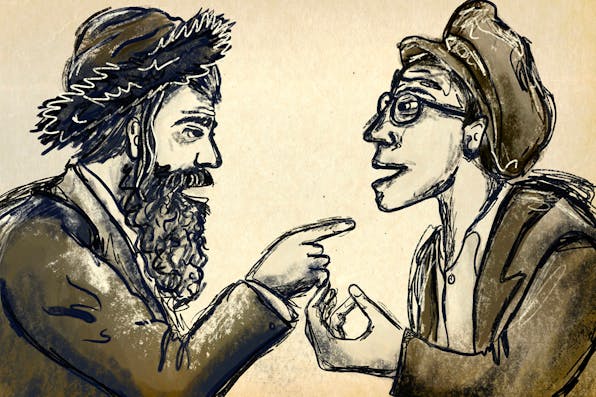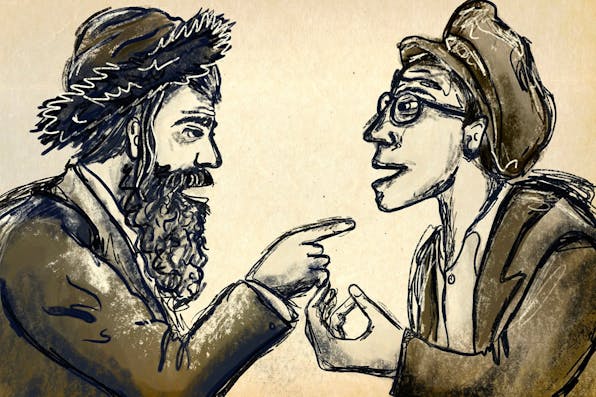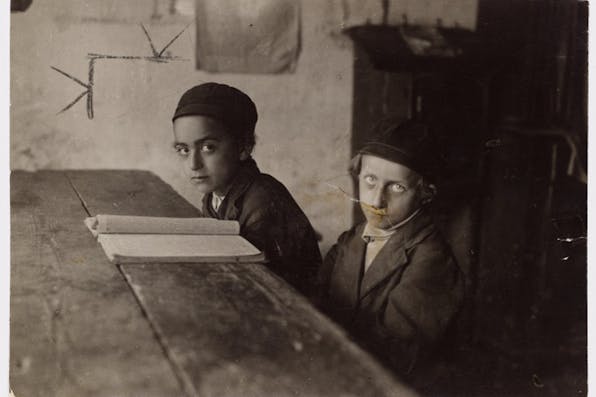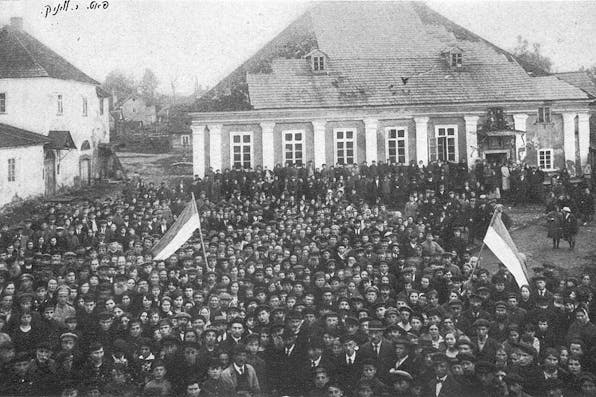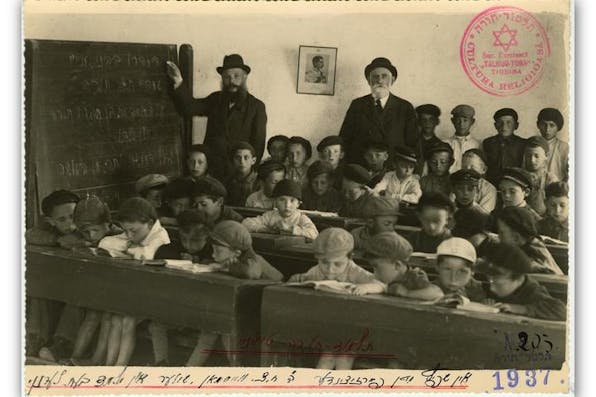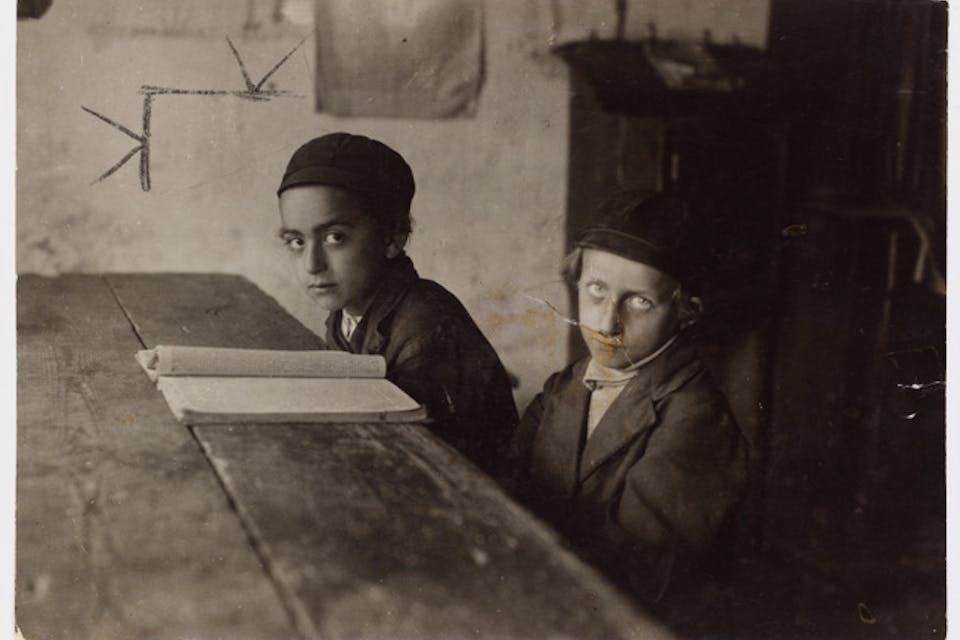
December 21, 2020
An Immortal Character in Jewish History
Hersh Rasseyner is inescapable. The guy-yelling-at-you figure reappears in each generation, going back to when even Moses pulled a "Hersh" for the entire book of Deuteronomy.
I first met Hersh Rasseyner in Jerusalem in 1994. (Of course that wasn’t his name, but that hardly matters. A Hersh Rasseyner is a Hersh Rasseyner.) He and I were both students in the Bronfman Youth Fellowship, a Jewish text study program for teenagers that, like the Novaredok yeshiva of old, gave special importance to ethical elements of Judaism—in particular the idea of maḥloket leshem shamayim, argument for the sake of heaven. Students, selected for their passion for Jewish study and their divergent religious outlooks, were encouraged to hone their middot, character traits such as humility and patience, by debating their theological differences with profound respect. We did, like the Lithuanian Musarnik Hersh Rasseyner in Chaim Grade’s story, at all hours.
The Hersh I met back in 1994 was one of the program’s more rigidly religious participants. In class discussions and outside of them, he constantly reaffirmed the most pedantic interpretations of every text, insisting that his view was the authentic one. This supposed authenticity gave him what every seventeen-year-old craves: an identity. He was popular. I was not, and was suspicious of popular people. But the purpose of the program was to listen to others, to keep an open mind, and at seventeen I was not cynical. So I heard him out one Friday night when a group gathered in my dark dorm room to continue the debates of the day.
The argument escalated until Hersh commandeered it, giving a long and angry soliloquy in the dark about how everyone who mattered for the past several thousand years could attest that he was right. I can’t remember now what we argued about. What I do remember was how he concluded his speech, in this educational setting whose chief goal was open-ended, pluralistic dialogue: “I’ve said my piece, and now I’m leaving.” He then walked out of my room. I met that Hersh Rasseyner again in 1996, when we were both students at Harvard—and where he had become an outspoken atheist. This surprised me, though it shouldn’t have.
